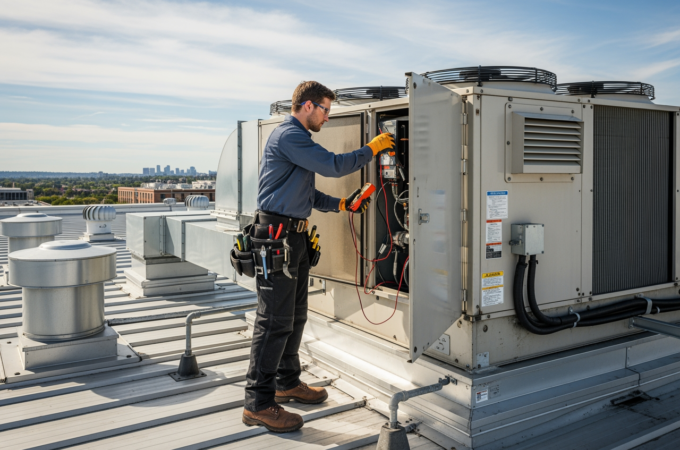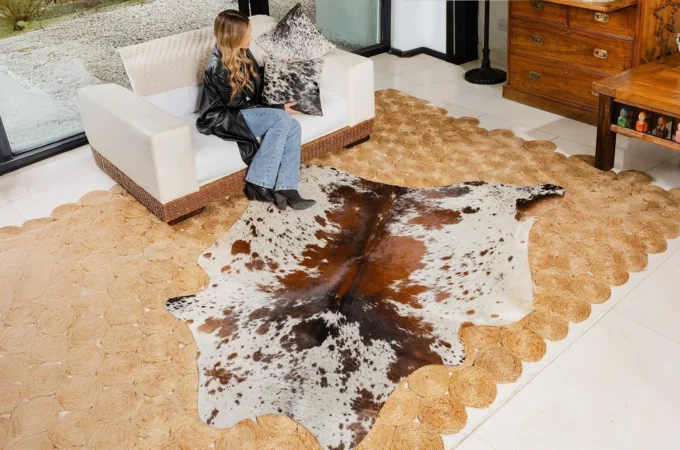
Downspout Materials Compared: Which One Is Right for You?
When it comes to protecting your home from water damage, downspouts are just as important as gutters. They channel water away from your home’s foundation, siding, and landscaping. But while many homeowners focus on gutter styles and leaf guards, the material of your downspouts plays a major role in long-term durability, performance, and aesthetics.
So, how do you choose the right downspout material for your home? Let’s compare the most common options—aluminum, vinyl, galvanized steel, copper, and stainless steel—to help you make an informed decision for your next downspout installation Fishers project.
Table of Contents
Toggle1. Aluminum Downspouts
Pros:
- Lightweight and easy to install
- Corrosion-resistant
- Available in a wide range of colors
- Affordable and widely used
- Compatible with seamless gutter systems
Cons:
- Can dent or bend under impact
- Not ideal for extremely high winds or heavy snowfall
Overview:
Aluminum is the most popular material for residential gutter systems, and for good reason. It’s affordable, rust-resistant, and versatile. With many baked-on enamel finishes available, aluminum downspouts can match virtually any home exterior. While they’re not the strongest option, they offer a great balance of performance and value, making them a solid choice for most homeowners.
2. Vinyl Downspouts
Pros:
- Very budget-friendly
- Lightweight and easy to DIY
- Won’t rust or corrode
- Available in white and a few neutral tones
Cons:
- Can crack in extreme cold or with heavy impact
- Limited color and style options
- May fade or become brittle over time
Overview:
Vinyl downspouts are often chosen for low-cost installations or DIY projects. They’re ideal for mild climates but don’t perform as well in areas with temperature extremes. If you’re looking for a quick, low-cost solution, vinyl may work—just be aware that it has a shorter lifespan and less visual appeal than metal alternatives.
3. Galvanized Steel Downspouts
Pros:
- Strong and durable
- Can withstand heavy rainfall and snow loads
- Lower cost than copper or stainless steel
Cons:
- Can rust over time, especially if coating is scratched
- Heavier and harder to install
- Fewer color options
Overview:
Galvanized steel downspouts are built for strength. They’re ideal for homes in areas with heavy precipitation or where durability is more important than appearance. However, they do require maintenance to prevent rust, especially if the protective zinc coating wears away. Homeowners should inspect these regularly to ensure longevity.
4. Copper Downspouts
Pros:
- Extremely long-lasting (50+ years)
- Develops a natural patina over time
- Adds architectural appeal and value
- Rust-proof and corrosion-resistant
Cons:
- Expensive
- Requires professional installation
- Patina look may not be for everyone
Overview:
If you’re going for a high-end look and long-term performance, copper is hard to beat. Over time, copper downspouts develop a beautiful greenish patina that adds character and curb appeal. While the initial investment is significant, copper can last a lifetime with minimal maintenance. This option is best suited for historic homes, luxury builds, or homeowners seeking standout aesthetics.
5. Stainless Steel Downspouts
Pros:
- Extremely durable and strong
- Resistant to rust and corrosion
- Sleek, modern appearance
Cons:
- Higher cost than aluminum or vinyl
- Less common, so fewer style options
- Can be overkill for average residential needs
Overview:
Stainless steel downspouts are built for extreme durability and a modern aesthetic. They resist rust, corrosion, and damage from the elements. However, they come at a premium price and are usually more common in commercial or contemporary custom homes. Unless you’re designing a modern-style exterior or need maximum toughness, they may exceed your needs.
Choosing What’s Right for You
When selecting a downspout material, consider your climate, budget, home’s style, and maintenance preferences. Here’s a quick breakdown based on common homeowner needs:
- Best all-around option: Aluminum – versatile, rust-resistant, and cost-effective
- Best for budget-conscious homeowners: Vinyl – affordable and easy to install (though less durable)
- Best for strength and harsh weather: Galvanized steel – strong but needs upkeep
- Best for curb appeal and luxury homes: Copper – beautiful and long-lasting, but pricey
- Best for modern aesthetics and strength: Stainless steel – sleek and ultra-durable
Also, think about downspout placement and whether you’ll need custom bends, extensions, or splash blocks to carry water far from your foundation. A professional assessment can help you avoid issues like pooling water or erosion, especially in areas with frequent storms or freezing temperatures.
Downspouts may not be the most glamorous part of your home’s exterior, but they serve a vital role in protecting everything from your roof to your basement. Choosing the right material means you’ll enjoy fewer clogs, less maintenance, and more peace of mind during every rainfall.
If you’re planning a new downspout installation, now’s the perfect time to evaluate your options and make a smart choice for both function and curb appeal.
Originally from the U.S, Rana Tarakji is an SEO Analyst, the founder of One SEO, a multinational link building company, and the author of “Off-site SEO Guide: A Hands-on SEO Tutorial for Beginners & Dummies”, and a web content specialist who now lives in Beirut, Lebanon. Rana’s work has been published in many print and online magazines and newspapers, such as Entrepreneur, Life Hacker, Upwork, Christian Today, and many more.





